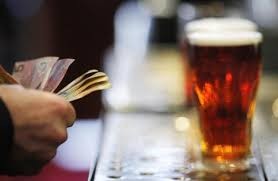Taiwan has the largest percentage of people who lack the alcohol-metabolizing gene ALDH2, with 47 percent of their population found not to have the gene, making them 50 times more likely to get cancer at some point in their lives.
The news was revealed by Stanford University during a seminar on Tuesday jointly held with Taipei Medical University.
ALDH2 Deficiency is common among Han Chinese people living in coastal areas, with significant portions of Han populations in East Asia lacking the gene. The percentage in China is 35 percent, in Japan 30 percent, and in South Korea 20 percent.
In Taiwan, the gene is notably present among members of indigenous people who are not Han.
According to Che-Hong Chen, senior research scientist with the Mochly-Rosen Lab at Stanford University, people have been told by doctors that drinking one to two glasses of red wine, or 14 grams of pure alcohol, a day can reduce the risk of cardiovascular disease. However, this suggestion is only valid for people of European descent, not for Asians who lack the ALDH2 gene.
The condition has been associated with how Han Chinese people react to drinking alcohol, with a significant portion of them turning red. This is why the condition has been popularly referred to as the "Asian flush."
The ALDH2 gene turns the acetaldehyde in alcohol, a carcinogenic substance according to the International Agency for Research on Cancer, into acetic acid.
In the bodies of people who lack the gene, the acetaldehyde will build up. If these people drink on a regular basis, it increases their risk of mouth, throat and esophageal cancers to more than 50 times, compared to people who have the gene, according to Stanford University's research.
People can find out if they have the gene or not by soaking a Band-Aid with liquor and sticking in onto the inner side of the upper arm. After 20 minutes, if the skin turns a reddish hue, that person has ALDH2 Deficiency.
As of now, Standford has discovered a compound called Alda that stimulated the ALDH2 gene during clinical experiments. The activator for the gene may be made available to the market in five to 10 years' time.



























